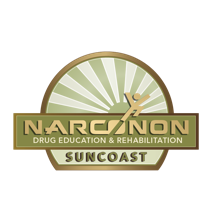Opiate Crisis Now Deadlier than the AIDS Epidemic

Last year was a tough year for the opiate epidemic in the United States. Nearly every 8.5 minutes people died due to an opiate overdose. Families all across the nation had to bury loved ones, mourn their loss, and obsess on where they went wrong. The opiate crisis has grown far beyond pills and heroin. Since the introduction of fentanyl to the dope game, deaths have continued to shoot through the roof every year, leaving nearly no addict untouched by its raw strength and sheer power. Drugs like Carfentanil, Acrylfentanyl, and a number of other analogues coming over from China are to blame for the enormous death toll on American streets. With the huge inflow of these drugs over recent years, getting high and getting your fix have become some of the most dangerous activities a person can participate in. And the thing is, it’s not just an isolated problem among opiate users. Fentanyl and other synthetic opiates have found their way into cocaine supplies and have also been found to be mimicking other drugs, such as Xanax. The overdose death rate from 2016 has just been released by the CDC and the figures are absolutely shocking.
According to the CDC, over 46,000 people died in 2016 as the result of an opiate overdose. The amount of people overdosing on synthetic opiates, like fentanyl, more than doubled from the year before and there was a 34% increase in deaths from heroin and painkillers like oxycodone. Keith Humphreys, an addiction specialist at Stanford University said, “It's even worse than it looks. This means that even if you ignored deaths from all other drugs, the opioid epidemic alone is deadlier than the AIDS epidemic at its peak.”
The death rate from synthetic opiates alone is ridiculous and it’s the synthetic opiates themselves that kicked off this insane surge in the death rates of addicts in the first place. According to Robert Anderson, chief of the mortality statistics branch at the National Center for Health Statistics, the data for 2017 isn’t looking much better. Actually, he said it’s possible 2017 is going to be worse than 2016. He said, “My guess is that when all of the data are in that the [2017] trend line will be at least as steep as for 2016, if not steeper.”
The response to all of this by many government and non-government agencies is that more people need to get onto medication-assisted therapies like Suboxone, Methadone, or Vivitrol and that should handle the death rate, or at least help it.
Seriously?
It’s like they’re wagging their finger at us, saying, “See, we told you to just take your meds.” While a romantic notion for sure, just popping a couple pills to handle your heroin problem doesn’t work. And while there are people out there who claim MAT (medication-assisted treatment) saved their lives and that without it they wouldn’t be here, there are countless, and I mean countless addicts out there who it didn’t work for. I personally know of more addicts who failed MAT than were successful with it. There’s no one single way to handle addiction for everyone. Not every method works for every addict. But I do know what I’ve seen work for the vast majority of addicts and that’s long-term treatment at a rehab center. That’s what I know works. We can keep throwing more drugs at the problem and hope that it works, or we could just make treatment broadly available to everyone.
Let’s stop doing the same thing over and over again and hoping for a different result. That’s insanity, right?
